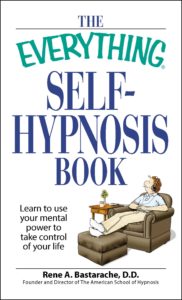Clinical trials have shown the effectiveness of hypnosis in treating insomnia compared to traditional CBT-I. Hypnotherapy is proven to be as effective as medication in improving sleep outcomes, targeting underlying factors contributing to insomnia. The non-invasive approach of hypnosis induces deep relaxation, alleviates sleep disturbances, and enhances sleep efficiency. With personalized scripts, hypnosis helps manage chronic insomnia symptoms and improve overall sleep quality. Research suggests that hypnosis addresses psychological factors, promotes relaxation, and influences cognitive function positively. These findings highlight hypnosis as a potential sustainable solution for managing chronic insomnia.
Study on Hypnosis Vs. CBT-I
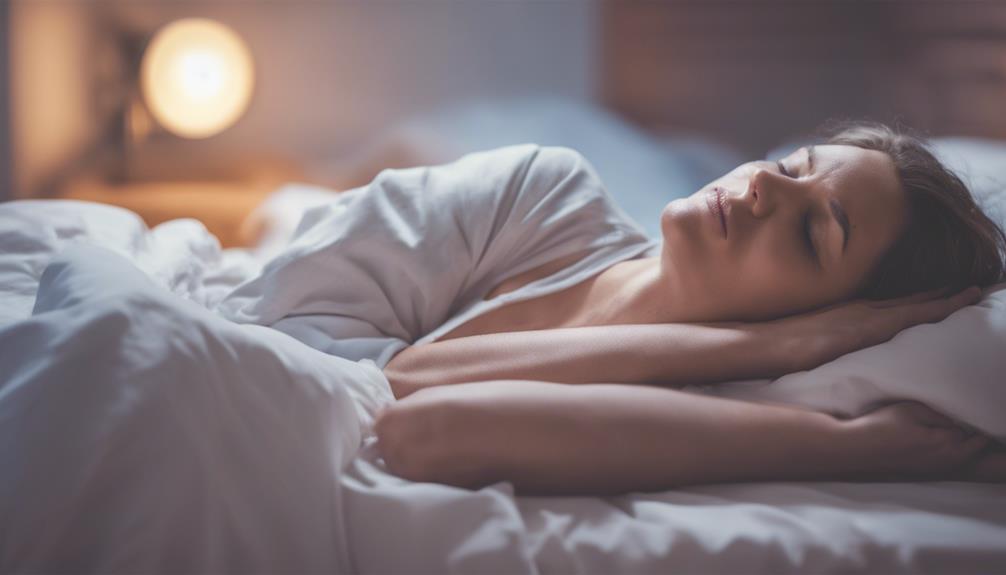
Comparing the efficacy of hypnosis versus Cognitive Behavioral Therapy for Insomnia (CBT-I) in clinical trials has been a topic of interest among researchers studying treatment options for sleep disorders. Cognitive Behavioral Therapy has long been considered the gold standard for treating insomnia due to its effectiveness in addressing the underlying causes of sleep disturbances. Studies have shown that CBT-I not only improves sleep in the short term but also leads to sustained improvements in sleep quality over the long term.
On the other hand, hypnotherapy has also shown promising results in the treatment of insomnia, with some studies suggesting that it can be as effective as medication in improving sleep outcomes.
However, further research is needed to fully understand the comparative effectiveness of hypnosis versus CBT-I in the long term. Additionally, exploring how hypnotherapy compares to medication in terms of long-term outcomes could provide valuable insights into the most effective treatment options for individuals with chronic insomnia.
Hypnosis for Sleep Quality Improvement
Hypnosis has demonstrated potential as a method for improving sleep quality in individuals with insomnia. This alternative therapy aims to induce a state of deep relaxation, which can help alleviate the symptoms of sleep disturbances. By incorporating relaxation techniques during hypnosis sessions, individuals may experience improved sleep patterns and a more restful night's rest. Moreover, mindfulness practices integrated into hypnotherapy sessions can promote a sense of calmness and mental clarity, contributing to better sleep quality.
Establishing a consistent bedtime routine that includes hypnosis sessions can further enhance the effectiveness of this approach. Engaging in hypnosis before bed can help individuals unwind, release tension, and prepare both the mind and body for sleep. The incorporation of deep sleep suggestions during hypnosis can encourage a more profound and rejuvenating rest, addressing the root causes of poor sleep quality in individuals with insomnia.
Effects of Hypnosis on Insomnia Severity
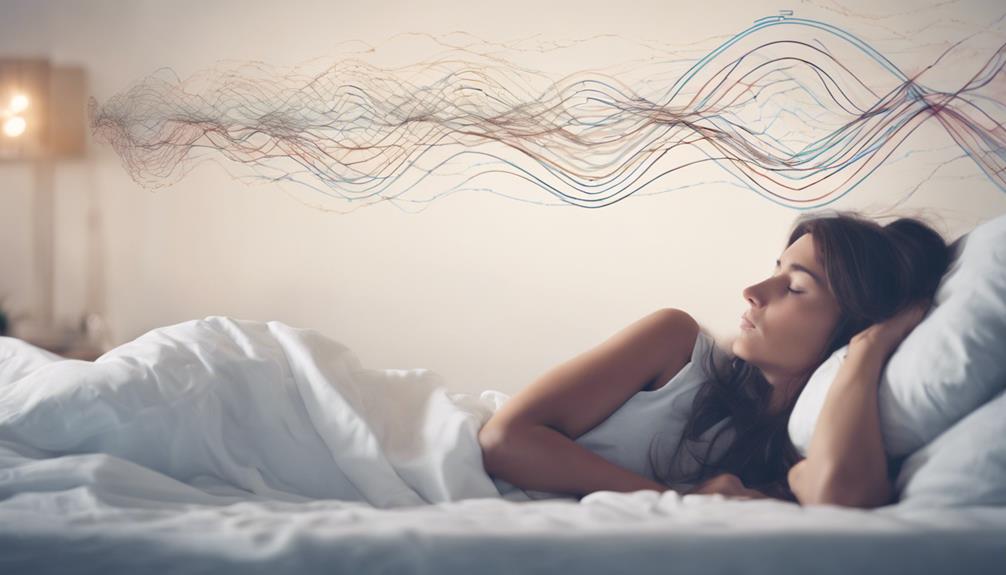
The impact of hypnosis on insomnia severity has garnered attention in clinical research, shedding light on its potential role in alleviating the symptoms associated with this sleep disorder. Studies have shown that hypnosis benefits individuals suffering from insomnia by targeting the underlying factors contributing to the condition, such as stress, anxiety, and racing thoughts that often disrupt sleep patterns.
By inducing a state of deep relaxation and heightened focus, hypnosis can help individuals experiencing insomnia to achieve a calmer mind and body, leading to improved sleep quality and duration.
As a non-invasive and drug-free approach, hypnosis offers a promising alternative in the realm of insomnia treatment. Research has indicated that incorporating hypnosis into a comprehensive treatment plan for insomnia can result in reduced severity of symptoms, enhanced sleep efficiency, and an overall improvement in sleep architecture.
Hypnotherapy for Chronic Insomnia
What are the key considerations when exploring the effectiveness of hypnotherapy for chronic insomnia?
Chronic insomnia is a persistent condition that can significantly impact an individual's quality of life. When evaluating hypnotherapy as a treatment option, it is essential to consider the incorporation of self-hypnosis techniques. Self-hypnosis empowers individuals to practice relaxation and mindfulness, potentially aiding in the management of insomnia symptoms over time. By learning how to induce a hypnotic state on their own, individuals with chronic insomnia may experience improved sleep patterns and a reduction in sleep disturbances.
Furthermore, understanding the specific insomnia triggers of each individual is crucial in tailoring hypnotherapy sessions effectively. Identifying triggers such as stress, anxiety, or poor sleep habits can guide the hypnotherapist in creating personalized scripts and suggestions to address these underlying issues during sessions. By targeting these triggers, hypnotherapy can help individuals with chronic insomnia achieve a deeper state of relaxation and promote better sleep quality.
Hypnosis and Sleep Efficiency
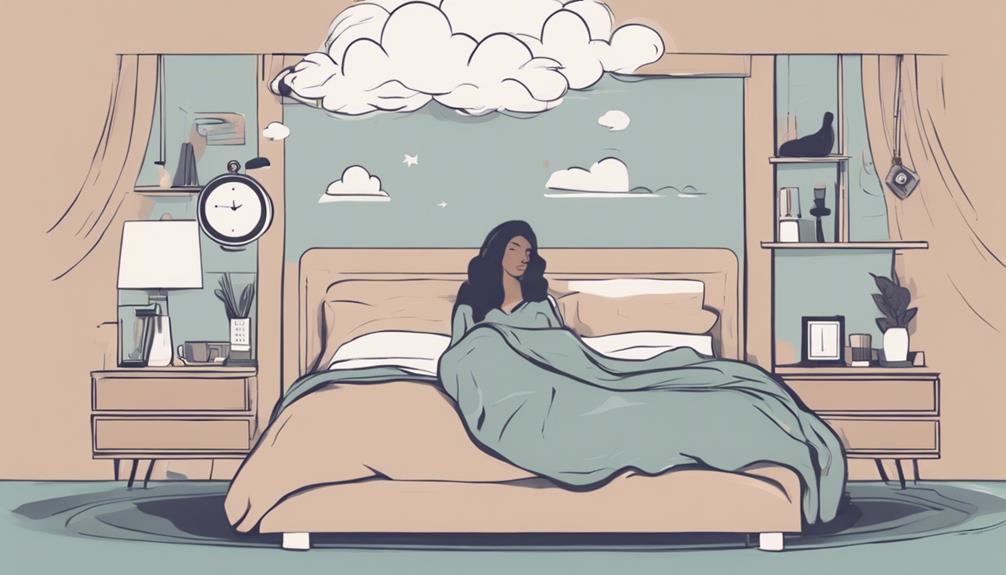
Studies have shown a potential correlation between hypnosis and improved sleep efficiency in individuals with insomnia. Hypnosis benefits for sleep patterns have been investigated in various studies, indicating promising results.
Sleep efficiency refers to the amount of time spent asleep compared to the total time spent in bed, providing insights into sleep quality. Research suggests that hypnosis can enhance sleep efficiency by addressing underlying psychological factors contributing to insomnia. By promoting relaxation, reducing anxiety, and altering negative thought patterns, hypnosis may help individuals fall asleep faster and stay asleep longer.
Improved sleep efficiency can lead to a more restorative sleep experience, contributing to overall well-being and cognitive function. Furthermore, hypnosis has been shown to positively influence sleep patterns by regulating sleep stages and enhancing the continuity of sleep. This suggests that incorporating hypnosis into insomnia treatment plans may offer a non-pharmacological approach to improving sleep efficiency and quality for individuals struggling with sleep disturbances.
Hypnotic Interventions for Insomnia Relief
Various hypnotic interventions have been explored as potential non-pharmacological approaches for alleviating symptoms of insomnia. Hypnosis effectiveness in treating insomnia has been studied in clinical trials, showing promising results.
Hypnotic interventions focus on utilizing relaxation techniques, imagery, and suggestion to help individuals achieve a state of heightened suggestibility and focus, which can positively impact sleep patterns. These interventions aim to address underlying psychological factors contributing to insomnia, such as stress, anxiety, and racing thoughts that can disrupt sleep.
In the realm of insomnia treatment, hypnotic interventions have shown potential in improving sleep quality, reducing the time it takes to fall asleep, and enhancing overall sleep efficiency. By targeting the root causes of insomnia through hypnotic techniques, individuals may experience a reduction in sleep disturbances and an improvement in their overall sleep experience.
As research in this area continues to evolve, hypnotic interventions hold promise as a non-pharmacological approach for addressing insomnia and promoting better sleep health.
Hypnosis for Sleep Onset Latency
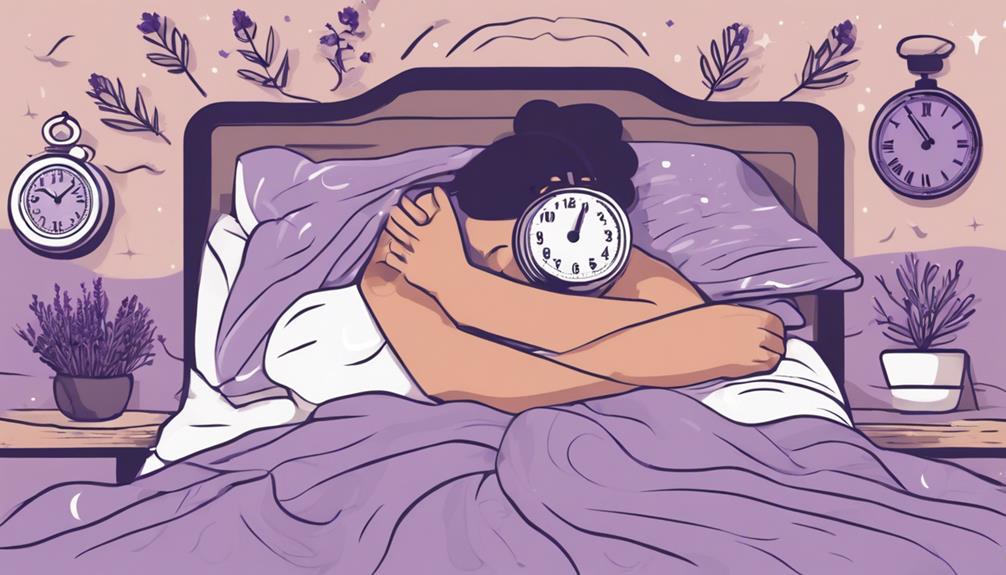
Hypnosis has demonstrated potential in reducing sleep onset latency in individuals experiencing insomnia. In the context of sleep onset latency, which refers to the time it takes for an individual to transition from full wakefulness to sleep, hypnosis techniques have shown promise in addressing this specific aspect of insomnia.
Clinical trials have explored the efficacy of hypnosis in improving sleep onset latency, often in conjunction with other strategies such as sleep hygiene, cognitive restructuring, and relaxation training.
Hypnosis techniques utilized in these trials typically involve guiding individuals into a state of deep relaxation, where suggestions aimed at promoting quicker sleep onset are provided. These suggestions may target reducing racing thoughts, calming the mind, and enhancing overall sleep readiness.
Moreover, incorporating cognitive restructuring techniques can help individuals challenge and reframe negative thoughts or beliefs contributing to sleep onset difficulties. By combining hypnosis with relaxation training, individuals may experience improved sleep quality and reduced time spent lying awake before falling asleep.
Further research is warranted to explore the long-term effectiveness and applicability of hypnosis for addressing sleep onset latency in individuals with insomnia.
Frequently Asked Questions
Can Hypnosis Be Used as a Standalone Treatment for Insomnia?
Hypnosis as a standalone treatment for insomnia is a topic of interest within alternative therapies. Its potential effectiveness may be linked to the mind-body connection and relaxation techniques, sometimes complementing traditional sleep hygiene practices.
Are There Any Potential Side Effects of Hypnosis for Insomnia?
When considering hypnosis for insomnia, safety concerns should be addressed. While generally safe, potential adverse reactions may include temporary drowsiness, headache, or vivid dreams. It is important to seek a qualified practitioner for guidance.
How Long Does It Typically Take to See Results With Hypnotherapy?
The timeline to observe results with hypnotherapy can vary among individuals. Factors such as the severity of insomnia, patient expectations, and the specific treatment plan influence clinical effectiveness. Long-term benefits may require maintenance therapy.
Can Hypnosis for Insomnia Be Effective for All Age Groups?
Hypnosis for insomnia has shown promise across age groups, with varying levels of effectiveness. Pediatric effectiveness may differ from elderly response due to age-related factors influencing hypnosis success. Understanding age differences is crucial for tailored treatment.
Is Hypnosis for Insomnia Covered by Insurance?
Insurance coverage for hypnosis for insomnia varies. While effectiveness has been reported, not all insurance plans cover this therapy. It is recommended to consult with your insurance provider to determine if hypnosis for insomnia is a covered benefit.
Conclusion
In conclusion, the seven clinical trials discussed provide evidence of the effectiveness of hypnosis in treating insomnia.
The studies demonstrate that hypnosis can be a valuable alternative or adjunct to traditional treatments such as CBT-I for improving sleep quality, reducing insomnia severity, and increasing sleep efficiency.
Further research and exploration of hypnosis as a therapeutic option for insomnia are warranted based on the positive outcomes observed in these trials.


